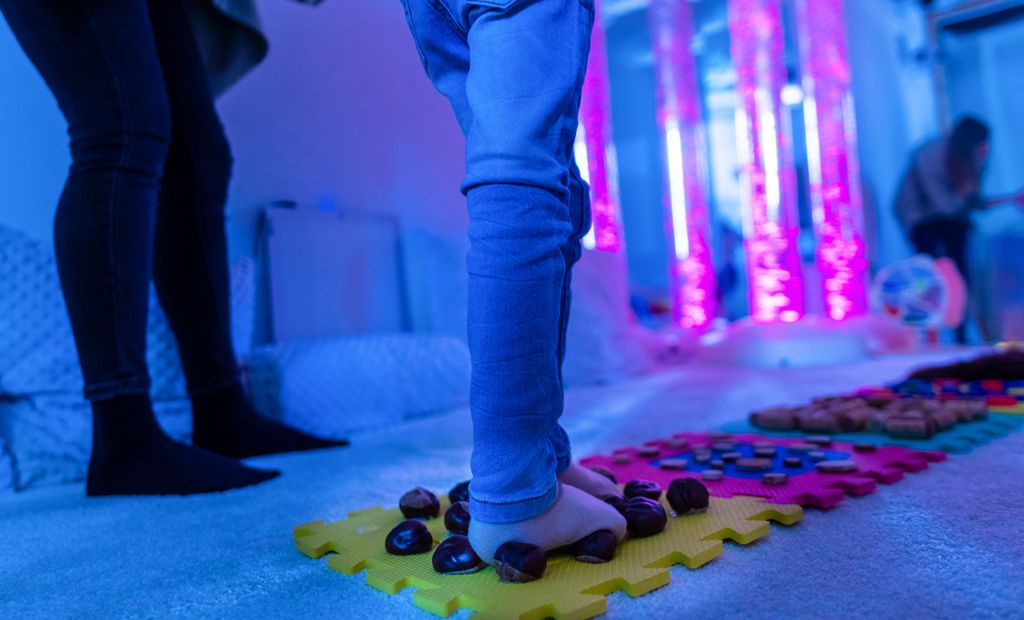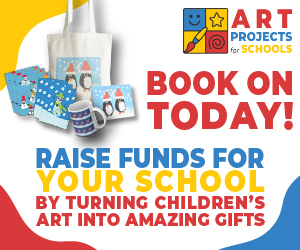Get families of autistic kids involved in the PTA as much as possible. Put a shout-out in your newsletter asking SEND parents to come along to meetings, join the committee or form an advisory group. ‘Consultation is key,’ says the National Autistic Society’s Christine Flintoft-Smith. ‘Ask families what they need in order for your activities to feel accessible to them–and recognise that no two autistic people are the same.’
If you’re holding busy events, schedule a quiet hour or early opening for children who need it.
Consider investing in autism awareness training for your committee and share the learning. ‘If you’ve got people volunteering for the PTA who aren’t familiar with the autistic kids in your school, brief them on what to expect,’ says Christine. ‘For example, autistic kids might not make eye contact with you, or want to communicate verbally, and if you’re guiding them somewhere touch isn’t advised for come individuals.’
Be inclusive about how you spend your funds. Could you fund a sensory room or fidget toys for the classroom? Create an inspirational wall of famous autistic people? Organise a talk by an autistic author, sportsperson or entrepreneur? Set up a SEND parents’ coffee morning?
Give plenty of notice of changes to routine, such as non-uniform days or dress-up days. ‘A visual aid, such as a countdown calendar leading up to World Book Day, is a really good way to prepare children,’ says Christine. ‘It’s also important to accept that some kids might not want to participate.’
When planning events, identify sensory triggers such as bright lights, loud noises or strong smells. Consider removing or reducing these and make sure levels are adjustable. Provide sensory tools, such as sunglasses and ear defenders, and set up a quiet space with sensory toys away from the main activity.
Widen your range of fundraisers so there are more that kids can do at home, at their own pace, such as a read-a-thon, sponsored skip, virtual treasure hunt or livestream gaming fundraiser. Consider fundraisers that would specifically appeal to autistic children.
Offer autistic kids the option to be involved in activities in a way that feels comfortable for them. ‘Give them a job,’ suggests Christine. ‘On sports day, could they blow the whistle or hand out prizes? At the school play, could they help with the lighting or be an usher?’
- Find out why silent discos offer an inclusive experience
- SEN-friendly events
- Equality, diversity and inclusion
Give as much information in advance as possible about fundraisers and events, to help autistic kids feel prepared. Provide a schedule and a map of the venue, both beforehand and on the day, and include visual information such as photos. Consider creating a ‘visual story’ describing what the experience will be like – touchautisc.com has a free tool.
Get feedback from autistic children and their families. ‘Ask: “How did we do? How could we do better next time?”’ says Christine. ‘Get them to help you develop an accessibility checklist of things to consider. That’s one way to make sure it’s sustainable, not a one-off.’
Queues and crowds can be a challenge for autistic kids. If you’re having a bake sale, organise a queue-jump system for pupils who need it.
If an activity involves food, Christine says: ‘Make sure there is more than one option, and that there are plainer ones available. Let kids know they can bring their own food if they need to.’
Pacing of activities is key. Autistic children may need more processing time, or time out to regulate. ‘Make sure nothing happens too quickly, and that there are breaks, ’says Christine. ‘If you’re doing an auction of promises, for example, make sure it doesn’t run from start to finish with no pause.’
‘Being inclusive is a core part of who we are’
Our ethos at Kingsnorth CofE Primary School is that all pupils should have access to our activities, regardless of need. We noticed that autistic children had stopped coming to our school discos, so the first thing we did was introduce a quiet space in the library just outside the hall. Pupils could have time out to regulate, and go back in if they wanted to. Then we thought, how can we take this further? We held our first silent disco last March, and the feedback from all the children was phenomenal. Several parents of SEND pupils said their children loved it because they could control the volume, and they didn’t feel different because everyone was wearing headphones. We now run two silent discos a year. For our Christmas fair, we introduced a SEND-only session at the start so pupils could go around the games and stalls without hundreds of other people in the hall. We kept the flashing lights off too. Instead of the group storytime sessions with Santa, SEND pupils had a one-to-one session with him. When we run Frozen Fridays, some pupils find it difficult to queue, so we allow several children to come discreetly to the front. In all our communications we say that we intend our events to be fully inclusive regardless of cost or need. We state the provisions we have but invite parents to contact us if they have any questions or concerns. In everything we do, we have that conversation about how we can meet everyone’s needs; it’s a core part of our discussions.
Karen Wilkins, SEND governor and PFA member at Kingsnorth CofE Primary School, Ashford, Kent (423 pupils)







